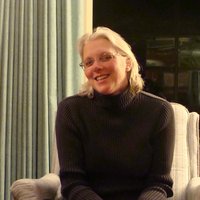Visiting Scholars at the Chair of Modern History
Katharina Kreuder-Sonnen
Dr Katharina Kreuder-Sonne is research assistant at the Institut für Zeitgeschichte der Universität Wien. She is currently working on the history of knowledge of large building sites and a global history of management in the second half of the 20th century. In her dissertation Wie man Mikroben auf Reisen schickt. Zirkulierendes Wissen und die polnische Medizin, 1885-1939 she examined the logistics of knowledge mobilisation and wrote the Eastern European space within a global history of modern sciences. Katharina Kreuder-Sonnen is co-leader of the research group New Cold War Studies at the University Vienna and co-editor of the journal WerkstattGeschichte.
Marissa Knaak
Marissa Knaak is a PhD candidate from Michigan State University. Her work focuses on the intersections of gender, class and production/consumption in department stores and their forerunners in the late 19th and early 20th centuries. Her current work is a comparison between Cologne and Sheffield, UK.
Lubomir Krastev
Dr. Lubomir Krastev is Assistant Professor of Modern European History at the Faculty of History of Sofia University, Bulgaria. He is interested in the history of Great Britain and its relation to the other great European powers in the 19th century. His doctoral theses investigated the British public opinion on Napoleon Bonaparte between 1796 and 1815. His second book examines medical aspects of the Crimean War and the effects of cholera on the British troops at Crimea, 1854-56. Currently, he leads a small team of young historians dedicated to researching the history of epidemics in Modernity.
Wolfgang Göderle
Dr. Wolfgang Göderle works as a postdoc at the Institut für Geschichte der Karl-Franzens-Universität Graz. He is interested in central-European social history of the early 19th century, for the shifts in the structures of imperial intermediaries in the Habsburg empire in the Napoleonic post-war era. With his dissertation Zensus und Ethnizität: Zur Herstellung von Wissen über soziale Wirklichkeiten zwischen 1848 und 1910 (Wallstein, 2016) he has opened the popular census in the Habsburg Empire for a knowledge historical angle, and created a central point of connection for the extension of the Habsburg Empire's modern history into the early decades of the 19th century. Together with Manfred Pfaffenthaler he published the double volume Dynamiken der Wissensproduktion (transcript) in 2018. Wolfgang Göderle teaches technology- and society history of the 19th and 20th centuries, with a special focus on digitalization as a technical, social and societal process.
Alexander Burns
Alexander Burns, M.A.,works on a dissertation on the topic: ‘The entire army says hello’: Common Soldiers’ Experiences in England and Prussia, 1739-1789 at West Virginia University. To conclude this study, Mr Burn is going to visit several archives near Cologne. In June 2019 he is a guest at the Chair of Modern History, University of Cologne, with an Artes-Familiarization-scholarship.
Sarah Jacobson
Sarah Jacobson, M.A., from the Michigan State University, works on her dissertation Squatting to Make Ends Meet: The Right to a Home in Italy and West Germany, 1970s-1980s. The city of Cologne is one of the case studies of her comparative German-Italian analysis. Due to an Artes-fellowship, Sarah Jacobson is a visiting scholar at the Chair of Modern History during the winter semester 2018/19.
Katherine Aaslestad

Prof. Dr. Katherine Aaslestad (†) was Full Professor of History at the West Virginia University. She worked on a research project on the post-war period after Napoleon and had particular interest in the ramifications of the wartime for the relation between the military and the civilian population during the phase of the Vormärz. In her dissertation Place and Politics: Local Identity, Civic Culture, and German Nationalism in North Germany during the Revolutionary Era, she analysed the political culture in Hamburg. With Revisiting Napoleon’s Continental System: Local, Regional, and European Experiences, she published one of the most important contributions to the history of the Continental System in Europe. As a grantee of the Fulbright Commission, Prof. Aaslestad had been a regular guest at the chair since 2016. In 2018, she also was a Fellow at the Historisches Kolleg in Munich.
